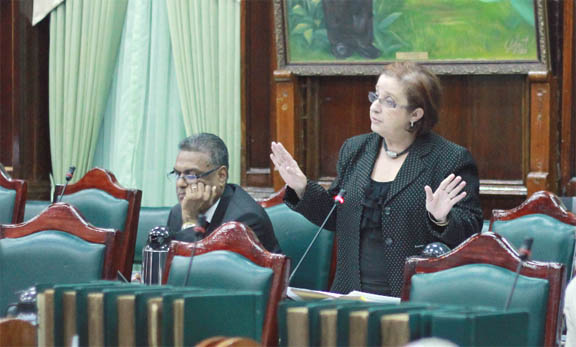A two-day workshop under the aegis of the Ministry of Culture and UNESCO has mapped out a plan for the preservation of the country’s intangible heritage and community participation is seen as pivotal.
A release on Thursday from the Government Information Agency said that with consultant Dr. Kris Rampersaud facilitating, stakeholders mapped out a step-by-step process by which Guyana can safeguard its intangible cultural heritage. A key element will include involvement of community stakeholders where it is believed the wealth of knowledge about culture is guarded and the holders of that culture can be easily identified.

Intangible heritage based on the 2003 UN convention is defined as “the practices, representations, expressions, knowledge, skills – as well as the instruments, objects, artefacts and cultural spaces associated therewith – that communities, groups and, in some cases, individuals recognize as part of their cultural heritage. This intangible cultural heritage, transmitted from generation to generation, is constantly recreated by communities and groups in response to their environment, their interaction with nature and their history, and provides them with a sense of identity and continuity, thus promoting respect for cultural diversity and human creativity.”
GINA quoted Dr. Rampersaud, a media cultural and literary consultant, researcher and writer, as saying that the community component is a principal element.
“We are all on board with what these conventions can do for Guyana… in terms of activating the communities to take charge of their cultures, knowing how in Guyana some of the communities are so remote and the fact that some of the cultures are disappearing so quickly, not just with erosion from outside influences but just from the mere fact that the young people are no longer interested,” Dr. Rampersaud said.
The workshop was held at the Umana Yana as part of this year’s Mashramani activities, and had as its theme, ‘Safeguarding our human treasure from generation to generation.’
Prime Minister Samuel Hinds attended the opening of the workshop and stated that Government considers culture to be an important aspect of nation building. He lauded the Culture Ministry for its effort to make cultural activities relevant to the country.
The visiting team also included Programme Specialist in Culture at the UNESCO Cluster Officer in Jamaica Himalchuli Gurung and talks were also held with President Donald Ramotar.
According to GINA, the convention is one of seven in the field of culture and is intended to ensure respect for intangible cultural heritage of communities, groups and individuals, to raise awareness and appreciation of the importance of such heritage and to provide for international cooperation and assistance.




